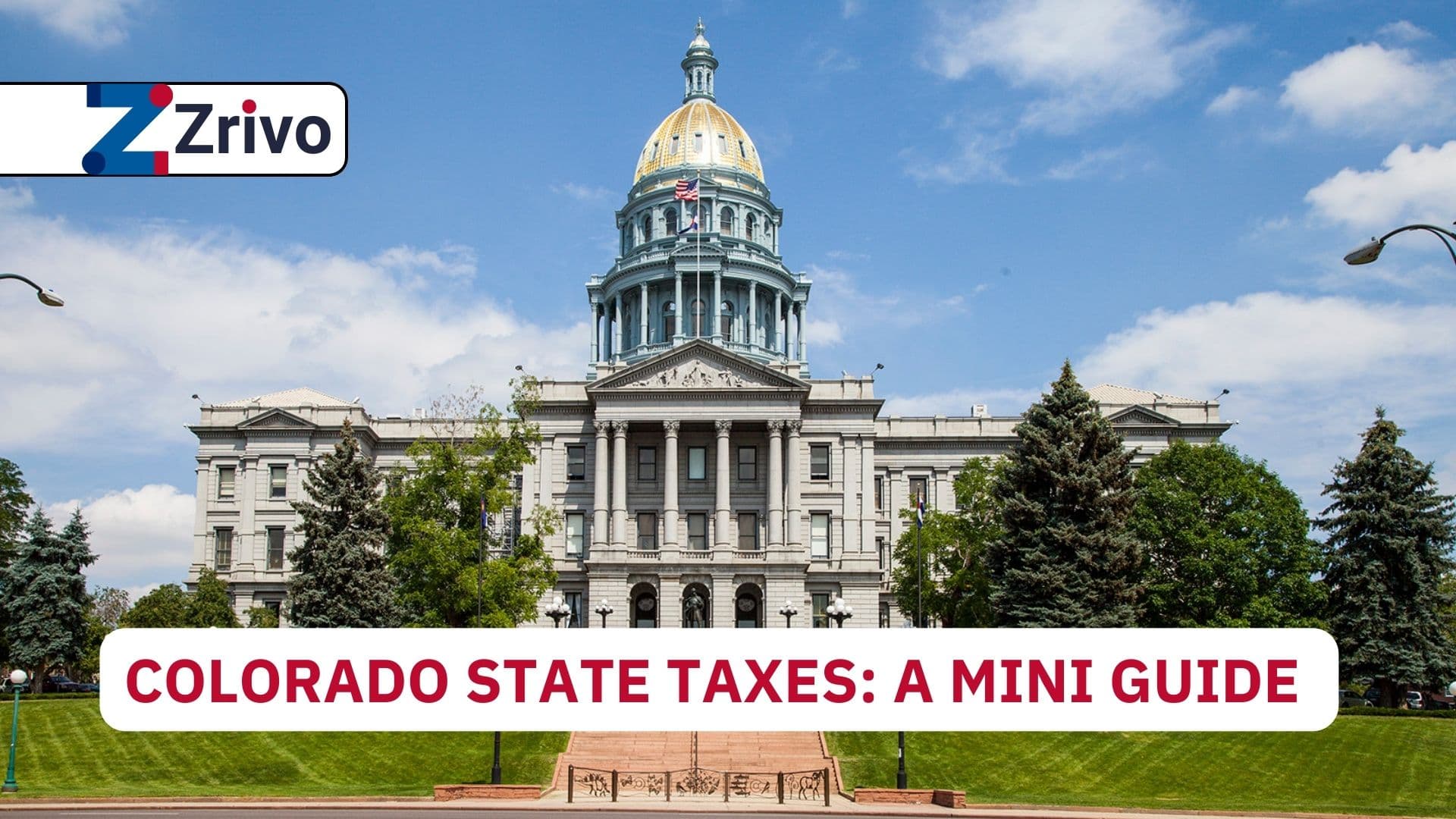Colorado’s tax system is designed to support the state’s essential services, from infrastructure and education to public safety and health care. For both individuals and businesses, understanding the types of taxes imposed by the state and local governments is crucial for effective financial planning and compliance. Colorado has a flat income tax rate, meaning that all residents and businesses pay the same percentage regardless of income level. In addition to the state’s income tax, Colorado also levies a sales tax, property tax, corporate tax, and several other specialized taxes that vary by locality. Furthermore, individual municipalities and counties within the state may have additional taxes, which means that your overall tax burden could be affected by where you live or operate your business. This comprehensive guide will cover everything you need to know about the different types of state and local taxes in Colorado, helping you stay informed and compliant with Colorado’s tax laws.
Colorado State Income Tax
Colorado imposes a flat income tax rate of 4.40% on all taxable income. This rate applies to individuals, businesses, and estates, making it one of the simplest income tax systems in the U.S. because there are no tax brackets.
Key Features:
- Flat Rate: Regardless of how much you earn, the state tax rate remains the same.
- Taxable Income: The income tax is levied on all taxable income, which includes wages, salaries, dividends, interest, and other forms of earnings after deductions.
- Filing Requirements: Individuals and businesses who earn income in Colorado or who are residents of the state must file a Colorado state tax return.
Colorado residents must file their state income taxes by April 15 (the same deadline as federal taxes). If you are a resident but earn income from out-of-state sources, you may be subject to additional filing requirements to account for your Colorado residency.

Sales Tax in Colorado
The statewide sales tax rate in Colorado is 2.9%, but local jurisdictions (such as cities and counties) can levy additional sales taxes, which often raise the effective sales tax rate in certain areas to well above the state baseline.
Key Points to Consider:
- State Rate: The state base sales tax rate is 2.9%.
- Local Sales Taxes: Municipalities and counties can impose their own sales taxes, and these rates vary across the state. In some areas, the combined state and local sales tax rate can exceed 8%.
- Taxable Items: Sales tax applies to most goods and some services. However, certain necessities like food for home consumption and prescription drugs are exempt from sales tax.
- Use Tax: Colorado also has a use tax, which applies to items purchased out of state but used or consumed within Colorado. This is intended to prevent individuals and businesses from avoiding sales tax by purchasing items from other states.
Property Taxes in Colorado
Property taxes in Colorado are levied at the local level (county, city, school districts, etc.), and the state does not collect property tax directly. Colorado has some of the lowest property tax rates in the nation due to the Gallagher Amendment, which limits the amount of tax that can be assessed on residential properties.
Key Details:
- Assessment Rates: Residential property is assessed at approximately 6.95% of its actual value, while commercial property is assessed at 29% of its value.
- Local Rates: Property tax rates vary by locality, and local governments use these taxes to fund schools, roads, public safety, and other community services.
- Senior Exemption: Colorado offers a property tax exemption for seniors, which allows qualifying seniors to exclude 50% of the first $200,000 of their home’s value from property tax assessments.
Colorado Corporate Income Tax
Colorado’s corporate income tax is also structured as a flat rate tax. All corporations doing business in Colorado are required to pay 4.40% on their taxable income, which is the same as the individual income tax rate.
Key Points:
- Applies to C-Corporations: The corporate income tax applies primarily to C-corporations. Pass-through entities, such as S-corporations, partnerships, and LLCs, typically pass income through to individual owners who report it on their personal tax returns.
- Apportionment: Corporations that operate in multiple states must allocate a portion of their income to Colorado based on their business activities in the state.
- Filing Requirements: All corporations operating in Colorado must file an annual corporate tax return.

Colorado Excise Taxes
+Colorado imposes excise taxes on specific goods, including fuel, tobacco, alcohol, and recreational marijuana. These excise taxes are in addition to the standard sales tax.
Common Excise Taxes:
- Fuel Tax: The state collects a tax on gasoline and diesel fuel. As of 2025, the rate is 22 cents per gallon for gasoline and 20.5 cents per gallon for diesel.
- Tobacco and Alcohol Taxes: Taxes on cigarettes and other tobacco products are relatively high, with a tax rate of $0.84 per pack of cigarettes. Alcoholic beverages are also taxed based on their type and alcohol content.
- Marijuana Tax: Colorado, being one of the first states to legalize recreational marijuana, imposes a 15% excise tax on the wholesale price of marijuana and an additional 15% sales tax on retail marijuana sales.
Local Taxes in Colorado
In addition to state taxes, Colorado’s local jurisdictions have the authority to impose their own taxes, including sales, property, and use taxes. County and city sales taxes often range from 1% to 4%, depending on the locality.
Examples of Local Taxes:
- Denver: The combined sales tax rate in Denver is 8.81%, including both state and local levies.
- Boulder: Boulder’s combined sales tax rate is 8.845%.
- Aspen: A popular tourist destination, Aspen has a combined sales tax rate of around 9.3%.
Local property taxes also vary significantly based on the location and value of the property. Some areas have additional special district taxes to support local schools, water districts, and other public services.
